Here's What Will Happen If We Don't Raise The Debt Ceiling
The Bipartisan Policy Center looked at what will actually happen if Congress doesn't raise the debt ceiling...

Before we get to that, though, some background. We have already hit the debt ceiling. The Treasury is now using "extraordinary measures" to pay our bills.
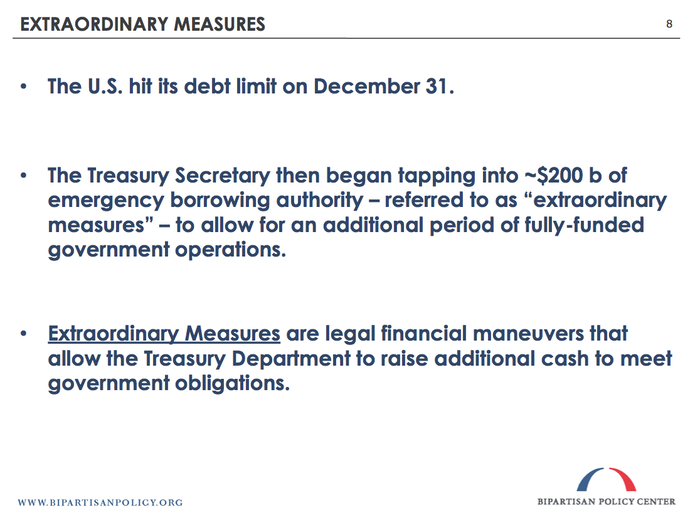
Here are some of these "extraordinary measures," along with the cash they're freeing up.
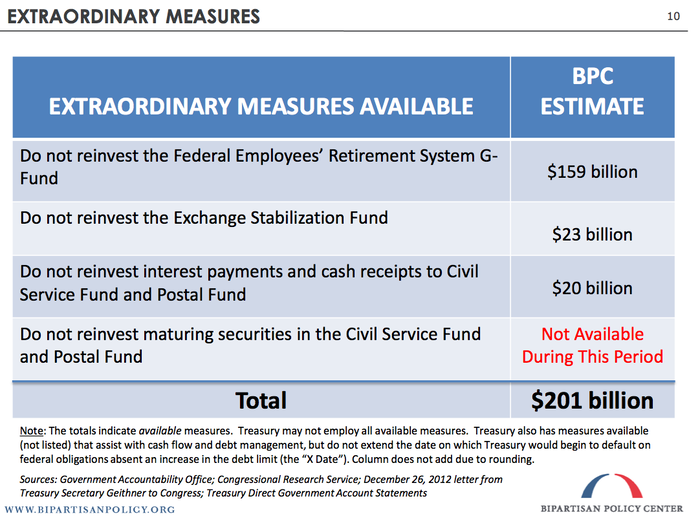
When the "extraordinary measures" run out, the Treasury will have only two sources of cash to keep paying bills: The cash it has on hand and new cash inflows.
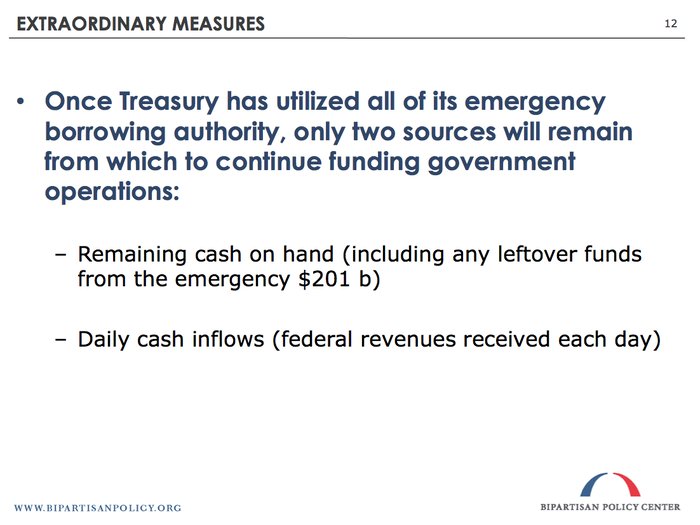
Once we blow through the cash on hand, we will start defaulting on payments. Full stop.
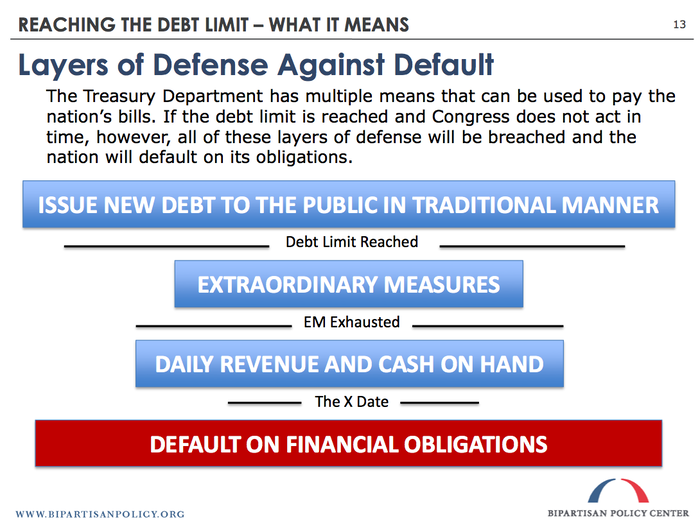
The day we run out of cash is called "the X Date."

The BPC believes the "X Date" will occur between February 15 and March 1.
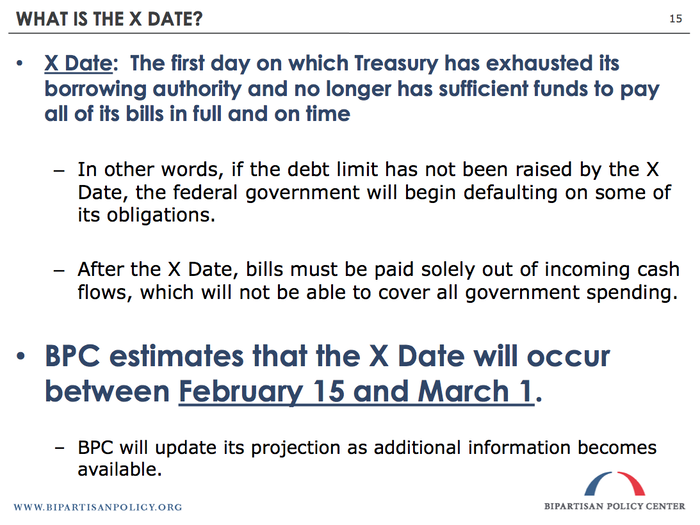
In other words, 5-7 weeks from now.
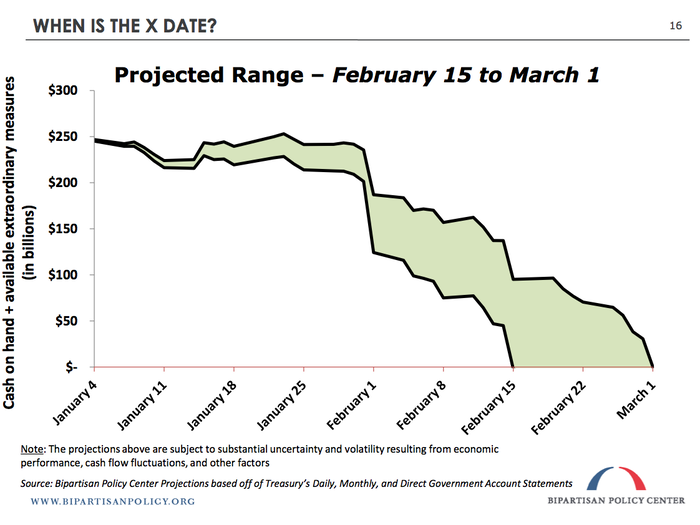
So, what will happen on the X Date?
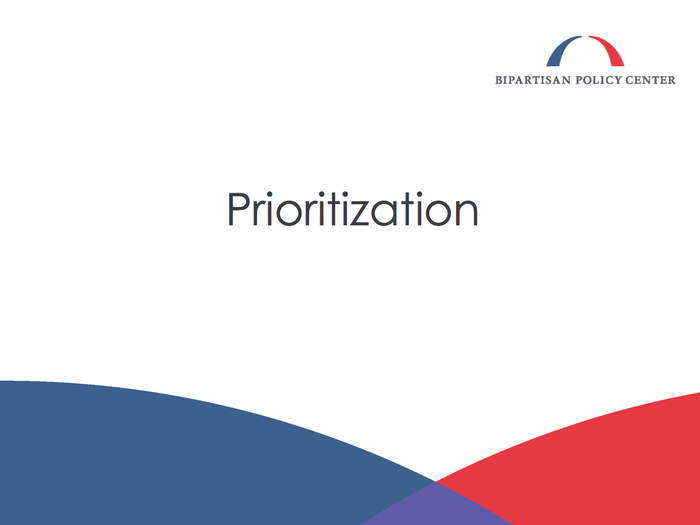
Well, assuming President Obama doesn't issue an Executive Order or mint a "trillion-dollar coin" or take some other action to keep paying the bills, the following will happen...
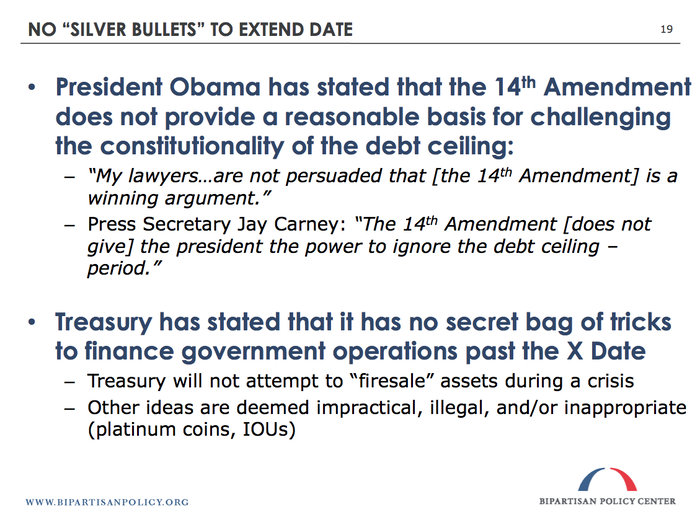
The Treasury will have to either 1) Prioritize some bills, or 2) Delay paying ALL bills until it has received enough new cash to pay them.
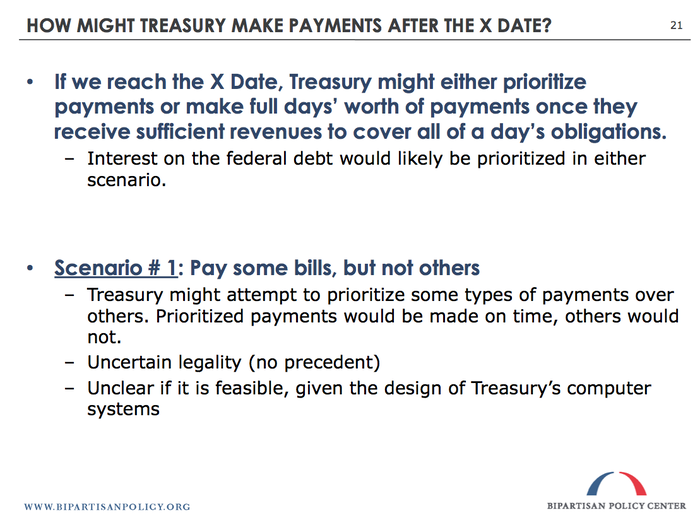
The second scenario would involve grouping bills by day, and then paying them when enough new cash has trickled in.
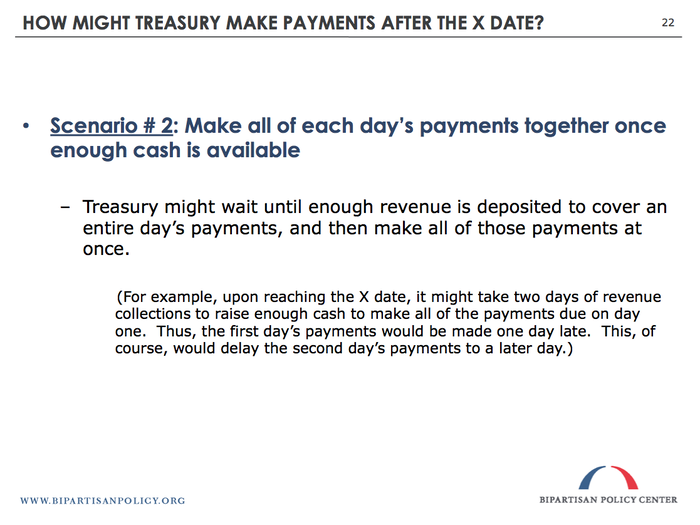
In the first month after the X Date, the Treasury will have to default on 40% of our bills. Most people assume it would be easy for the Treasury to just prioritize "important" payments over less important ones. But everyone also has a different view of what is "important." And the Treasury pays 100+ million bills a month.
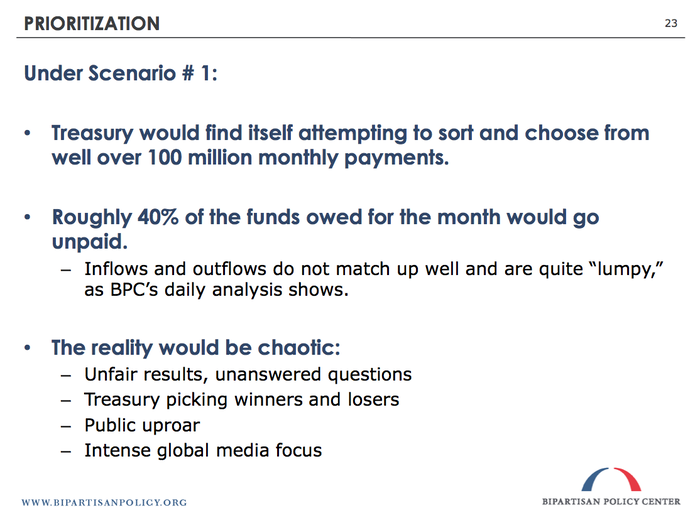
Looked at differently, in the first month after the X Date, $175 billion of bills will go unpaid.
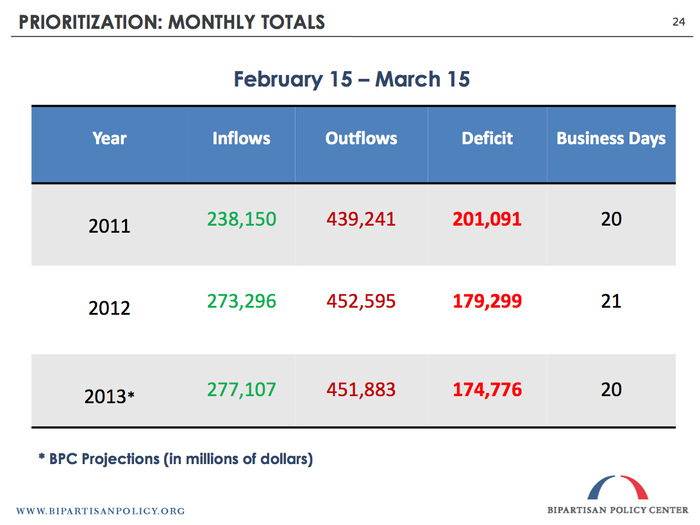
Here's one scenario: Pay interest on debt, tax refunds, Medicare, Social Security, military pay, and unemployment...
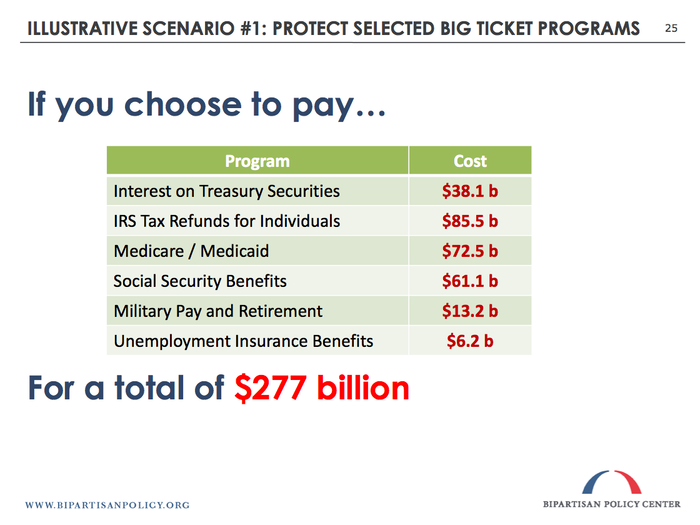
If we did that, we would have to default on payments to defense contractors, veterans, federal workers, education programs, food stamps, and more...
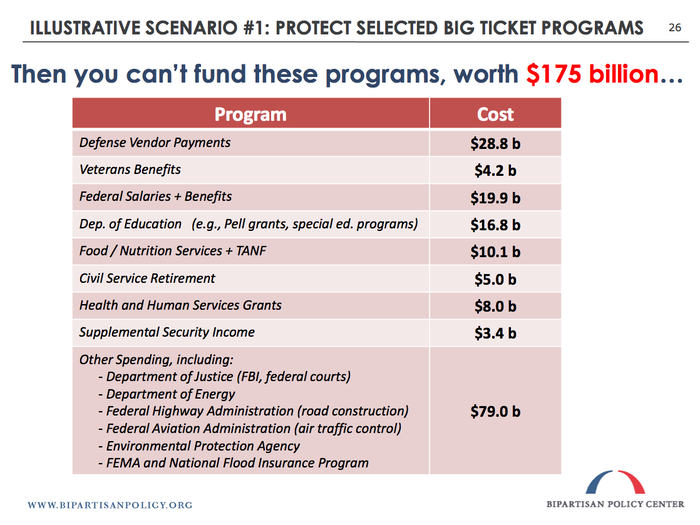
And here's another scenario. If we decided to pay all of THESE bills...
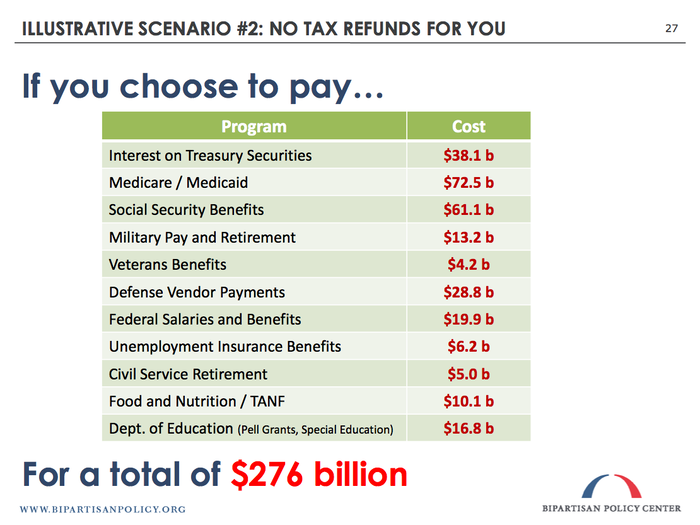
We would have to default on all of these.
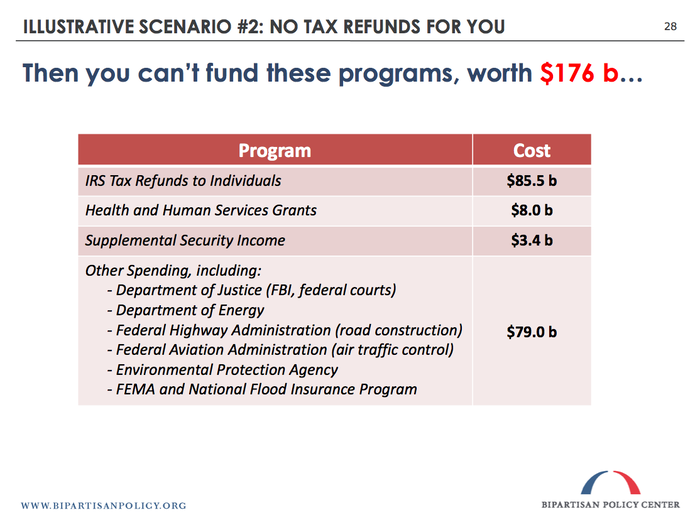
The BPC took a look at what that would mean day by day, starting on February 15th.
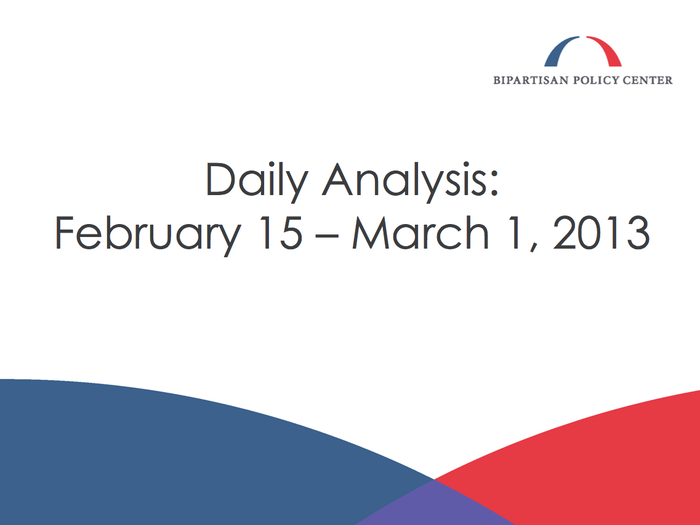
On Friday, February 15th, we will collect $9 billion in new cash. And we will have $52 billion in new bills to pay. So, $43 billion of bills will go unpaid.
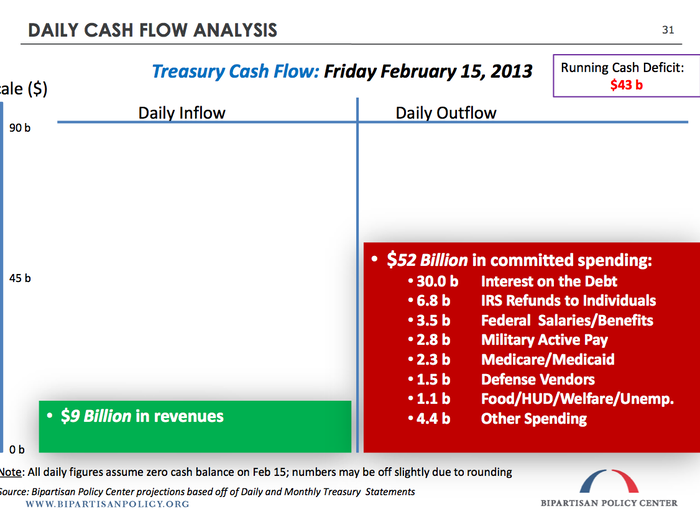
On Tuesday, February 19th, after the long weekend, we are expected to receive $15 billion in new cash. Meanwhile, we will have $16 billion of new bills to pay. We will add these to the $43 billion of bills we didn't pay the previous Friday.
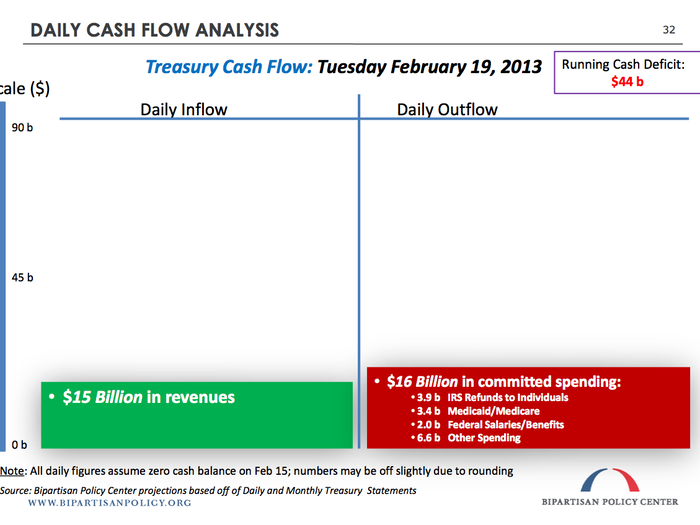
On Wednesday, February 20th, we'll collect $16 billion in new cash. And we'll have another $30 billion of new bills to pay. By then, three working days after the X Date, we will have cumulatively welshed on $58 billion of bills.
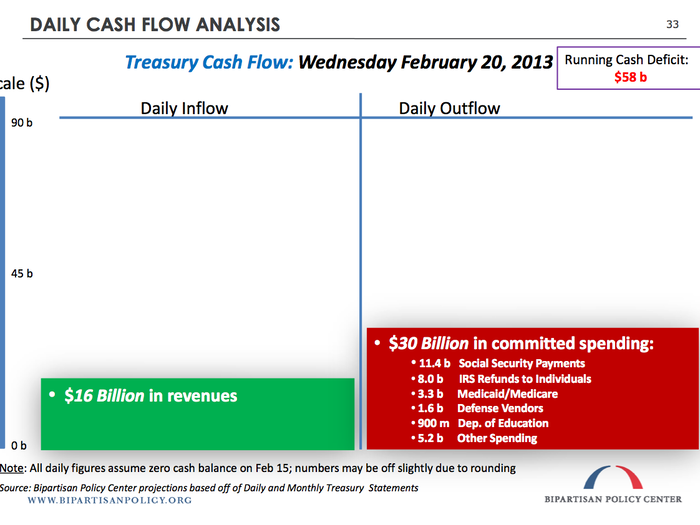
And so on.
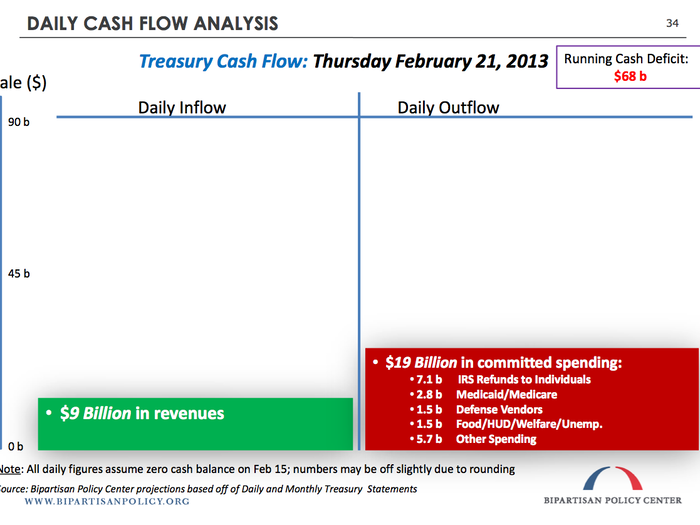
With each day that goes by, our cumulative "default" will grow.
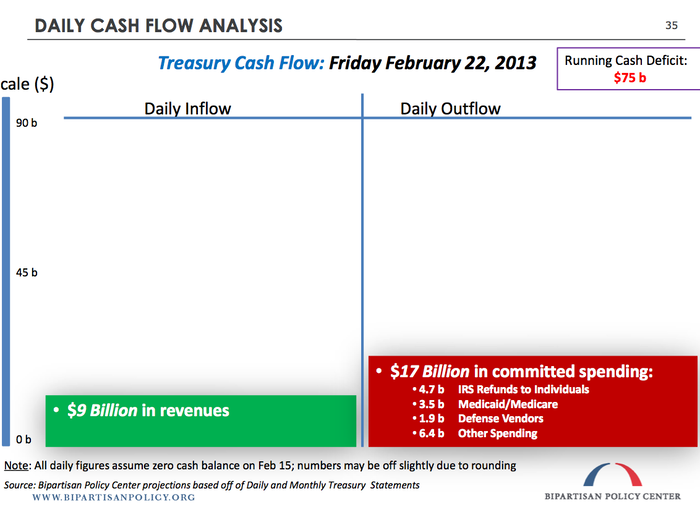
After 6 days, we'll have reneged on $84 billion of payments.
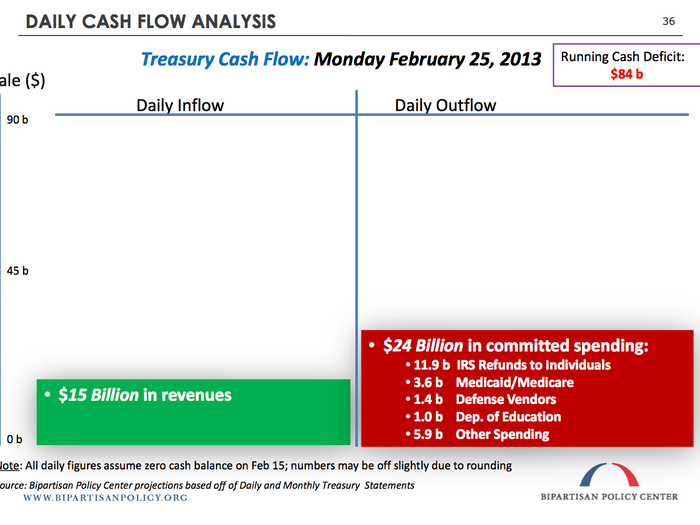
And the tab will continue to grow.
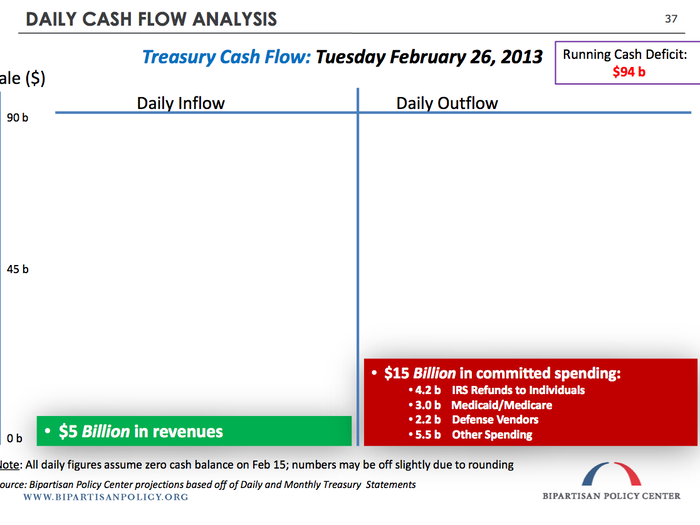
The United States Of Deadbeats
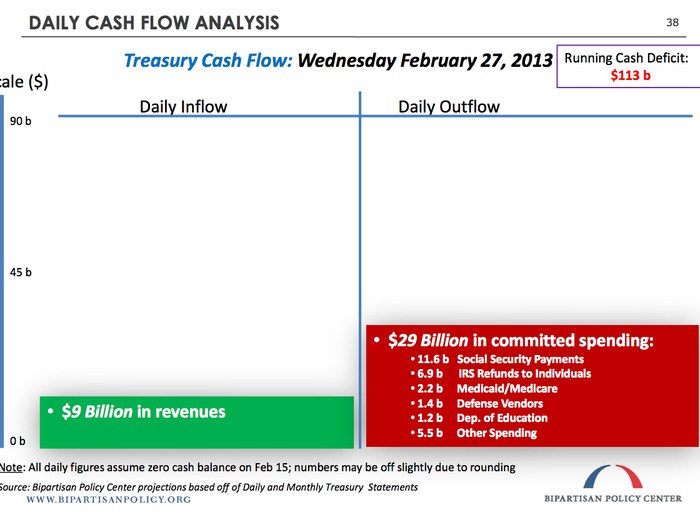
What a glorious new identity for America.
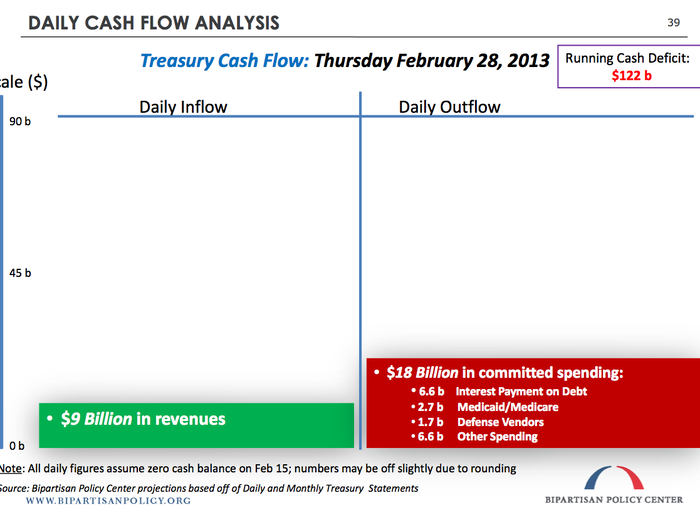
Friday, March 1, will be a particularly ugly day. And, by then, only two weeks after starting to screw people, we'll have reneged on $185 billion of bills.
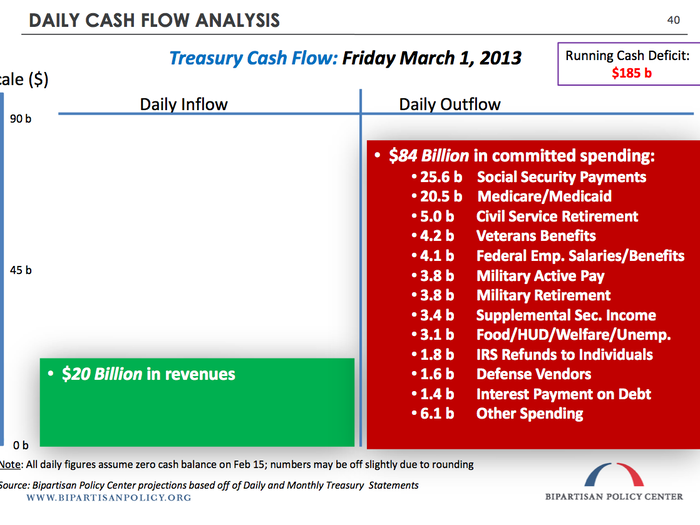
And in case it isn't clear already, this will be a gigantic mess. The ~40% cut in government spending would hammer the rest of the economy. Americans and American companies depend on that spending. In two weeks, the US economy will shrink by about 10%. In other words, we will instantly be in the middle of a severe recession.
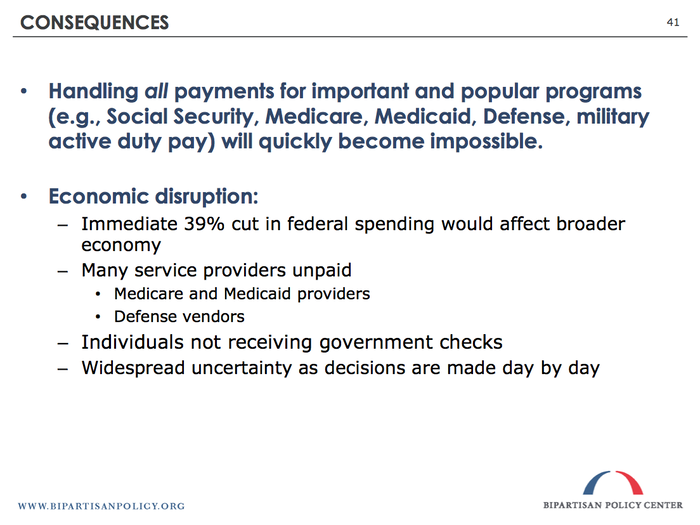
Oh, and by the way, even threatening to default will soon start costing us money.
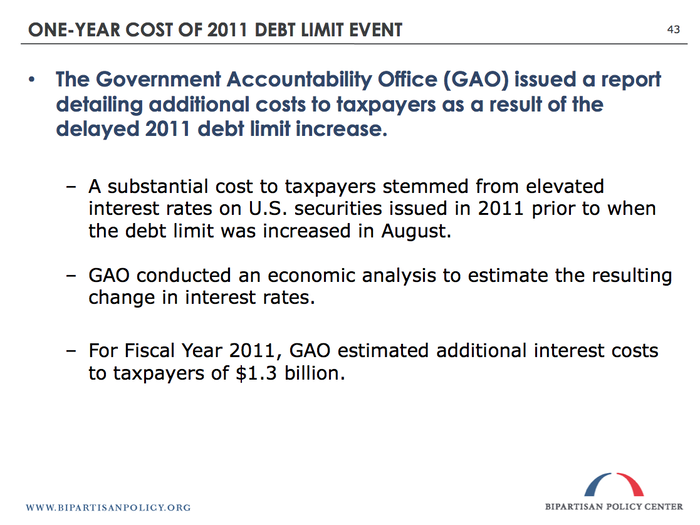
Bond markets get nervous when governments show signs of going insane. The insanity with the debt ceiling in 2011 has cost us $19 billion in extra interest payments so far, according to the BPC.
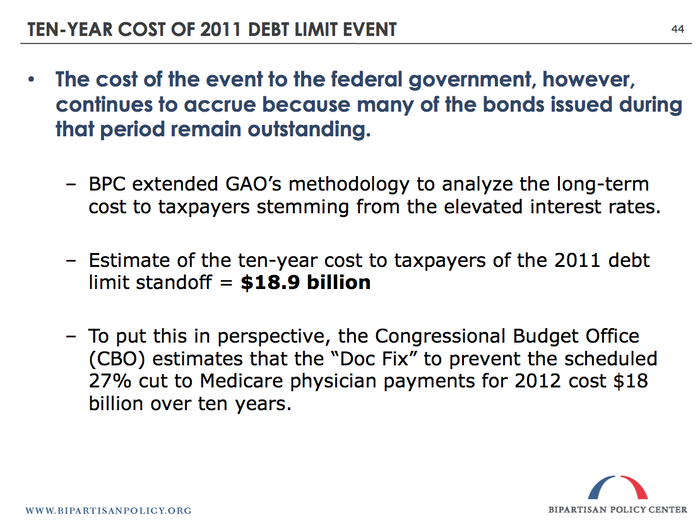
And then there's the debt that we have to "roll over" after we default. That will get more expensive, too.
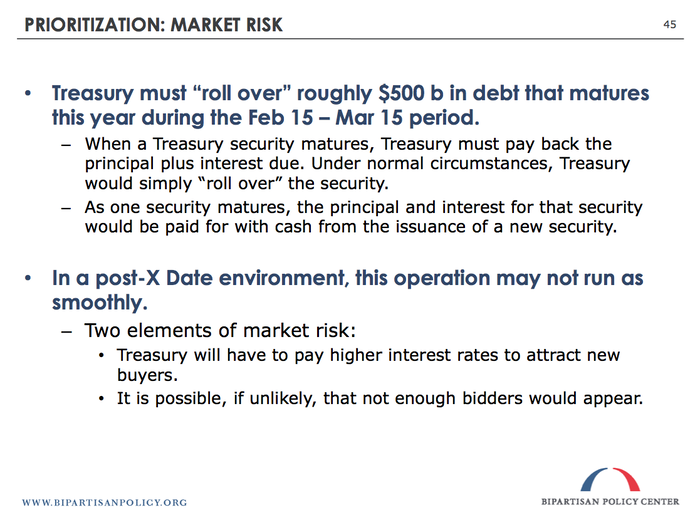
And, yes, there will be other consequences...
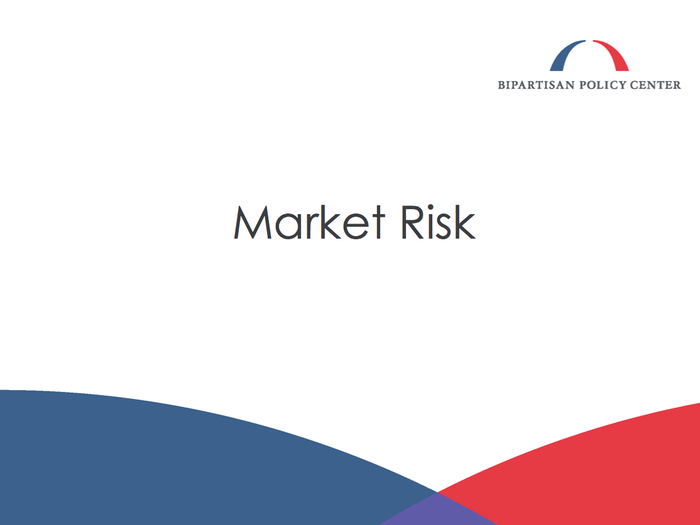
No one cares about the rating agencies anymore (thank goodness), but there will presumably be downgrades. And, more importantly, global stock markets and economies will collectively experience a heart attack. If the richest country in the world can just suddenly decide to stop paying its bills, imagine what other countries might do.
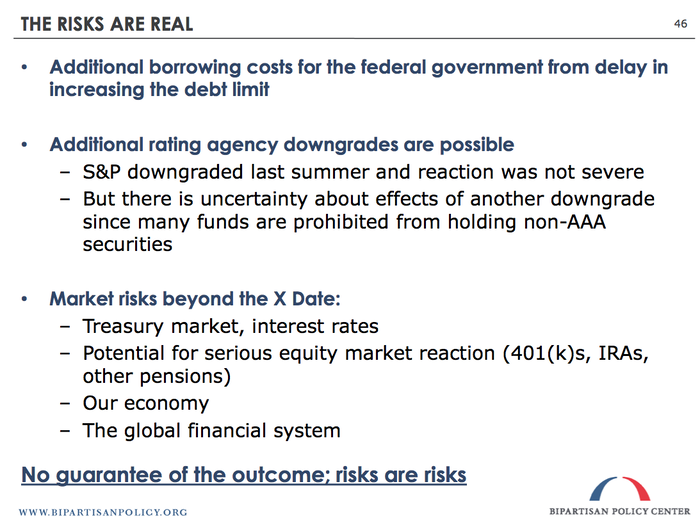
So, we need to raise the debt ceiling. Period. The sooner the better. And the MORE the better. Adding just another $1.1 trillion will only get us to the end of this year. And then we'll have to go through this whole ridiculous and scary charade again.
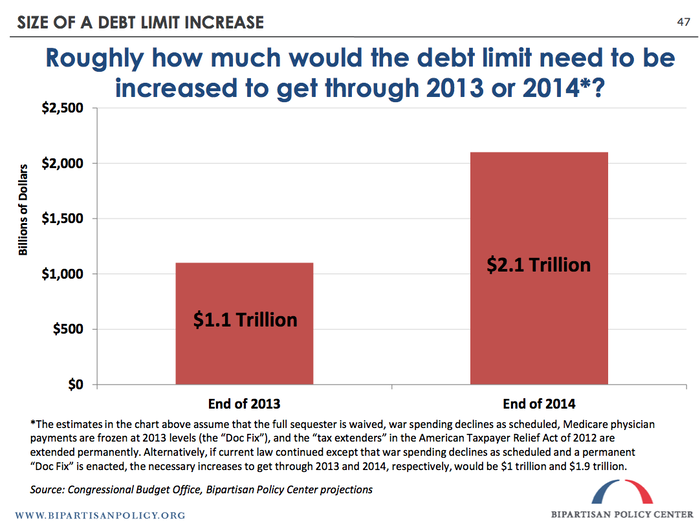
Our thanks to the folks at the BPC for detailing what will actually happen if Congress doesn't raise the debt ceiling.
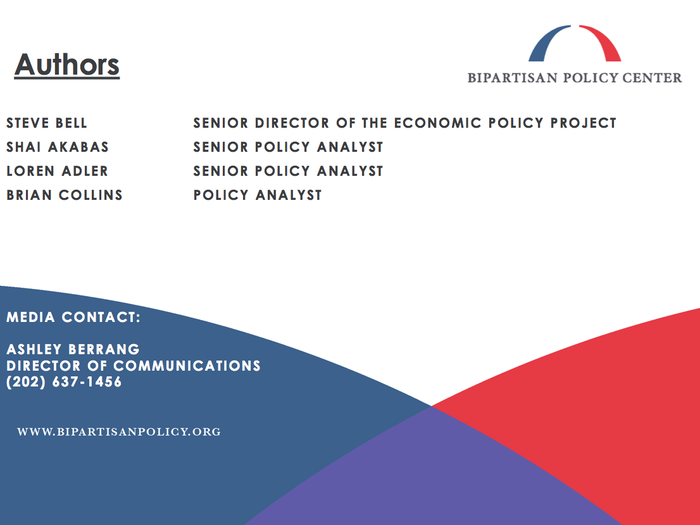
And now that you know that...
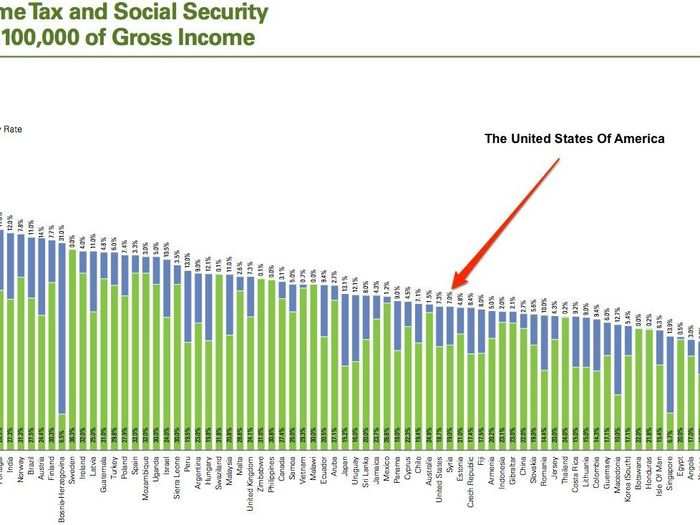
Popular Right Now
Popular Keywords
Advertisement